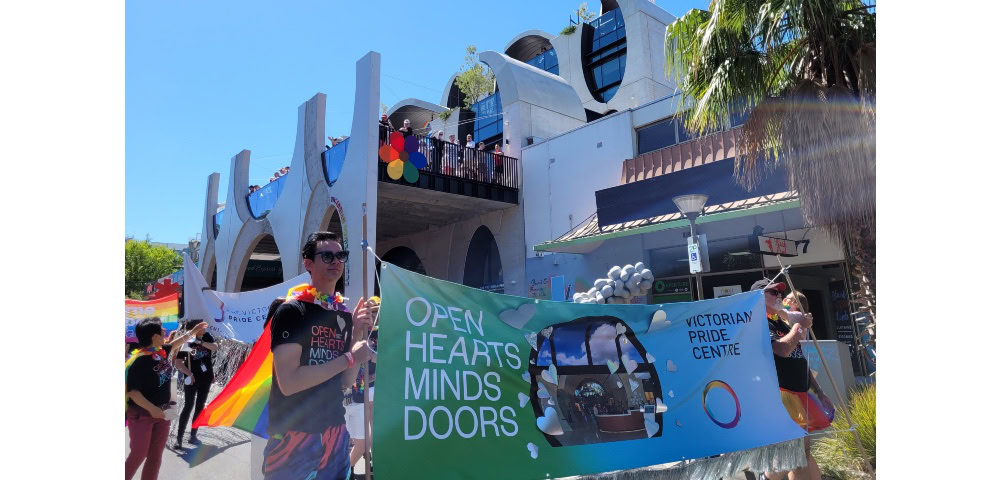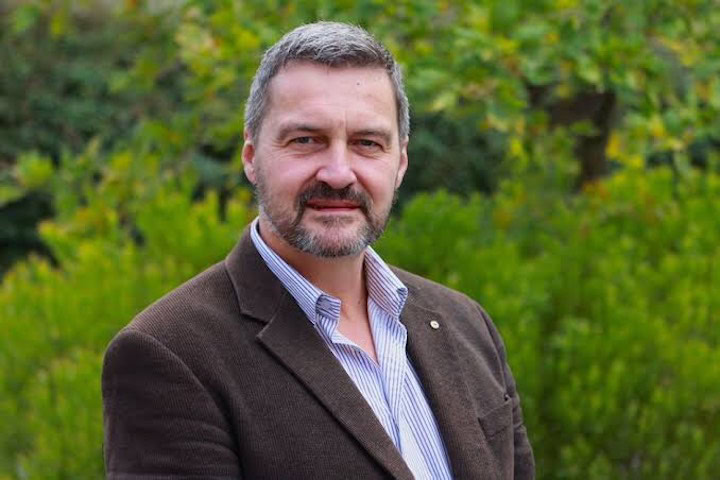
How To Run A Safe Queer Event…When Everyone Else Is Cancelling

I have stood across the street from neo-Nazis more than once. I came out in London in the mid-eighties when bands of skinhead thugs and National Front bully-boys would march alongside the Pride parades spitting abuse and yelling sieg heil.
I was young, in my early twenties, coming out into a world that was vastly different to the one I’m living in today, but that threat – of masked black-clad men in steel-capped boots – has been around for decades – it is just more and less visible, more and less prevalent.
I’ve learnt a lot since those early days about how we live with that threat and about what makes me and my community feel safe. Right now, we’ve just finished Pride month, a celebration of queer identity and resistance that marks the historic Stonewall riots when, for the very first time in history, queer people were seen in numbers on the streets.
Being Visible
On that day in 1969, we became visible; that’s the importance of Stonewall and Pride month and, since then, that visibility has been the cornerstone of our freedom. It’s very simple: if we are not visible, if we can’t be seen, we don’t exist – neither to the world nor to ourselves.
Our events – rainbow balls, drag story times, glitter bingo nights – are about visibility. They are where we see others like us, and where we connect and build community. They are where our young people see the versions of themselves that survived high school; where they see a range of queer people living ordinary, productive lives with partners, kids, lovers, jobs, families and friends.
So, we need you to stop cancelling them.
Now, I know that’s easier said than done, that there are complexities and challenges, and I’m not suggesting there’s a simple solution, but here’s the thing.
It Is Possible To Run Queer Events Safely
Last month, I participated in an event that involved bringing a hundred-plus queer young people from all around rural and regional Victoria to a central Melbourne location for a full day of activities with twenty leading LGBTIQ advocates. It was carefully advertised and ticketed, met all Child Safe Standards, and had effective security, including a low-key queer police presence. And, it went off without a hitch.
It sent a huge message to those young people that their community sees them, has their back, and will continue to make them safe despite what they see on TV and social media.
The event was the brainchild of Merrin Wake, a leading advocate who works with queer young people, particularly in rural and remote areas. Wake is also an expert in child safety and the success of the day is a very clear indication that it is possible to run LGBTQI events successfully and safely.
So, if you’re in the business of running community events and you’re thinking about organising something for the LGBTQI community, either for kids or adults – or for any other minority, vulnerable or threatened group for that matter – here’s a few things to include in your thinking.
Risk Mitigation Strategies
First, please, take a breath. Run a risk assessment for holding the event. Focus on your immediate local community. Consult with all your stakeholders and make sure that includes queer representatives. Contact your local Victorian Police LGBTIQ+ Liaison Officer and get the most up-to-date, regional intel and advice. Liaise with other similar organisations in your area and find out what they’re doing.
Identify risk mitigation strategies. Brief your workers and volunteers well before the event. Give them an opportunity to talk through their concerns. Provide details of support and counselling services for both your queer and non-queer staff.
Set up safe spaces for people during the event and provide extra mental health support and opportunities for de-briefing if required. Review Working with Children Checks and think about your adult-to-child ratios.
Pay attention to your security. If you experience negative commentary or hate speech, contact the eSafety Commissioner or your local police. Employ on-site security for your event to keep an eye on the door or the surrounding environment.
What Impact Will Cancelling An Event Have On Young Minds
Ask yourself: What impact will cancelling have on our local LGBTIQ community, especially young people? How will it affect other vulnerable or marginalised communities in our area? What message will it send to the people threatening the event? What happens if, next, they threaten the Jewish community, or target the local mosque, or attack people of colour? What about our multicultural celebrations? Will we cancel them, too? And are we still going to run NAIDOC Week events to support and celebrate our Aboriginal and Torres Strait Islander peoples?
In most cases, these events are cancelled because organisers don’t want queer people, especially young people, to witness overt aggression and hostility, to be exposed to vitriol and hate, to feel fearful or scared.
But none of this is new to our young people. Sadly, many of them experience this in their everyday lives; all of them experience it via social media – just talk to any young queer person you know – or any adult queer person for that matter. What they actually need is for the rest of us to acknowledge that reality and they need to see safe adults standing up for them and pushing back against the hate.
Cancelling these events will never make it safer for us, nor for whichever marginalised group those emboldened neo-Nazis come for next.
Jac Tomlins is a writer and leading queer advocate based in Melbourne.








